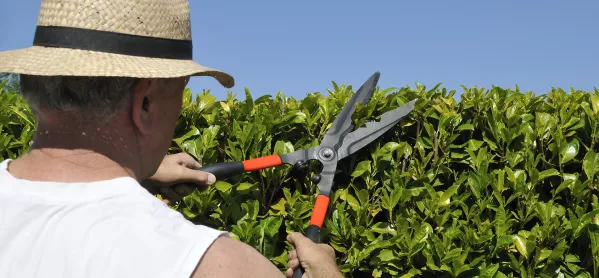- Home
- Leadership
- Strategy
- How the pandemic reshaped international leader relationships
How the pandemic reshaped international leader relationships

A few years ago, I was at a social gathering for international headteachers when a fellow head approached me.
Without even so much as salutation or introduction, they launched into an acknowledgment of the success of students from my school in a recent awards ceremony. Yet they did so with undisguised vitriol and the statement that we should enjoy the limelight while it lasts as he was out to “put us in our place”.
There was no cheeky smile to soften the blow; the message was delivered as intended - an unveiled and direct threat.
A period of change
This incident was several years ago but I have always remembered it as a distillation of a time when engagements between leaders were laden with suspicion and irrational assumptions that “they must be up to no good”.
Efforts to collaborate all too often led to insecurities about who was considered (or worse, considered themselves to be) the “tallest poppy”.
The landscape was volatile, suspicious and isolating. Other schools were viewed as competition; their leaders a potential threat to one’s own success.
Over the past two years or so, however, there has been a sea change in the international community whereby arms are down and mutual respect is rising.
The pandemic has been the catalyst for this. As uncertainty prevailed for us all and, along with it, the important responsibility to support our school community in navigating the myriad challenges it presented. We had no choice but to support one another.
Those who I once approached with caution, owing to the competitive nature of international education, have become my best professional friends.
We have been able to put politics aside and build a network of real support that has been instrumental in keeping me - and many others - afloat through our greatest challenge.
Collaborative communication
We identified the benefits of meeting more regularly, moving from termly formal sit-downs to weekly chats on Zoom. We abandoned set agendas when we realised that what we needed most at that time was kinship through our struggles.
We shared policies and practices, alongside real concerns and light relief.
We built a strong sense of “being in it together” and, while the nature of our schools within the group was vastly different in size, charter, clientele, finances and more, we recognised common struggles in leading our schools through difficult and uncertain times.
Through that effort, we broke down preconceived biases and discovered infinite benefit from our different perspectives.
We continue to talk regularly. Old members have moved on yet remain in contact.
New members have come and we are including them as much as they wish to be a part of the network we have built.
A recent situation involving a teacher under contract at my school, who had applied at another school in-country, was easily resolved with a collegial chat between heads. Previously, this same scenario would have ended with an angry email exchange and further damage done to already fractured relationships.
The connections are authentic. We build each other up and celebrate each other’s achievements.
We serve as professional referees for each other and have formed audiences for rehearsals of profoundly important presentations. We share critical incidents, seeking counsel from the collective wisdom and experience of network members.
A new era for leadership
No one outside of education fully understands the challenges that face those of us within it. When you can develop and nurture critical friendships with colleagues in similar roles, facing common challenges, everyone benefits.
Through regional and in-country associations, there should be good opportunities for collaboration. Through mine, I identified colleagues whom I trust and find rapport with. These “professional friends” have become my essential circle.
We call each other for counsel without risk of judgement or contempt; we have an unwritten charter to offer support and encouragement, as well as objective insight; we are comfortable asking the hard questions and support each other in finding solutions.
And when issues arise between us, such as staff movements, we are much better placed to have frank and honest exchanges than we were two years ago when we existed as islands apart.
Professional development for school leaders takes various forms. The benefit of nurturing rich, authentic relationships with fellow headteachers has been a tangible opportunity for growth for me.
The process of building relationships is necessarily nebulous and evolutionary, but I am now blessed with a wider circle of support that has been strengthened through adversity.
The headteacher who approached me at the event all those years ago has since retired. I wonder if they would succeed in this new era of collaborative leadership that has emerged.
Nicola Singleton is school director of the Modern English School Cairo, Egypt
You need a Tes subscription to read this article
Subscribe now to read this article and get other subscriber-only content:
- Unlimited access to all Tes magazine content
- Exclusive subscriber-only stories
- Award-winning email newsletters
Already a subscriber? Log in
You need a subscription to read this article
Subscribe now to read this article and get other subscriber-only content, including:
- Unlimited access to all Tes magazine content
- Exclusive subscriber-only stories
- Award-winning email newsletters



